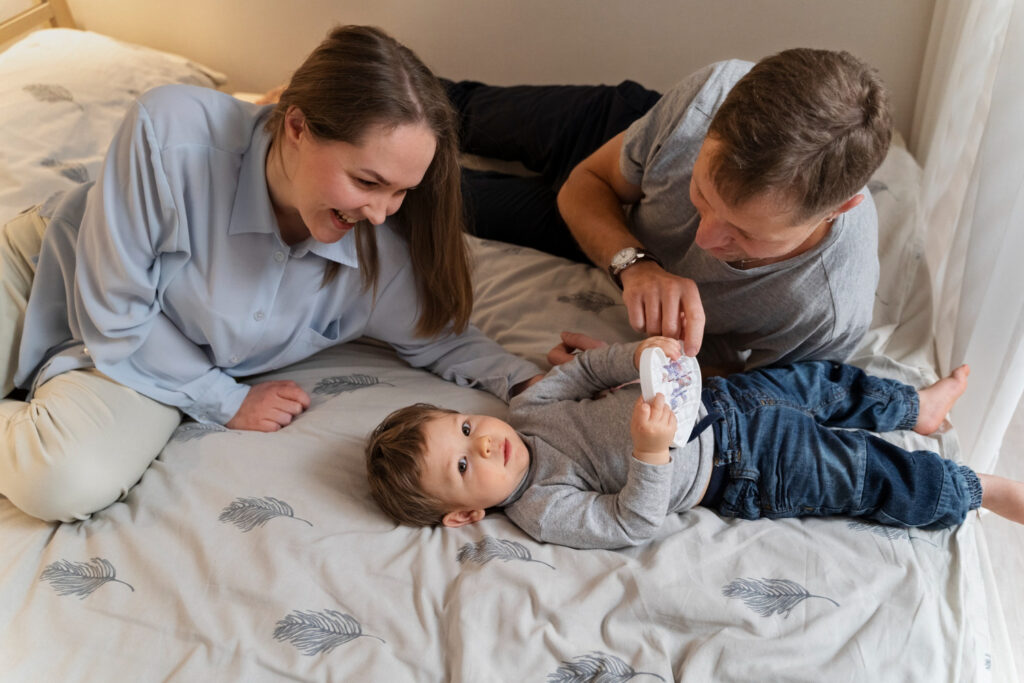Sleep problems are common among children with autism, affecting both their well-being and that of their families. Research suggests that as many as 50–80% of children with autism experience sleep-related challenges, such as difficulty falling asleep, waking frequently at night, or early morning awakenings. Addressing these issues is essential to promote healthy development, emotional regulation, and learning.
At HOPE Centre for Autism, we understand how vital sleep is and offer practical strategies to help parents navigate these challenges. This guide explores the link between autism and sleep disorders, and provides actionable tips to improve sleep routines.
Why Do Kids with Autism Struggle with Sleep?
Children with autism often face multiple factors that contribute to sleep disorders, such as:
- Melatonin Dysregulation: Melatonin, a hormone that regulates sleep-wake cycles, may not be produced at typical levels in children with autism, leading to difficulties falling or staying asleep.
- Sensory Sensitivities: Lights, sounds, or even the texture of bedding can overwhelm children with autism, making it hard for them to relax at bedtime.
- Anxiety and Hyperactivity: Children with autism may struggle with anxiety or hyperactivity, making it difficult to wind down before bedtime.
- Communication Issues: Nonverbal children or those with limited communication may find it hard to express their discomfort or need for sleep.
- Inconsistent Routine: Children with autism thrive on routine, and disruptions to their daily schedule can negatively affect their sleep patterns.
Tips for Helping Children with Autism Sleep Better
1. Establish a Consistent Bedtime Routine
Children with autism benefit from predictable routines. Establishing a calming, step-by-step bedtime ritual can signal to your child that it’s time to wind down.
- Example Routine: Bath > Pajamas > Reading a Book > Lights Off
- Try to stick to the same schedule every night, even on weekends or holidays.
At HOPE Centre for Autism, we help parents design tailored routines to suit their child’s unique needs.
2. Create a Sensory-Friendly Sleep Environment
Children on the autism spectrum may be sensitive to their environment. Adjusting the bedroom setup can help reduce discomfort and promote better sleep.
- Use blackout curtains to block light.
- Add white noise machines or calming music to mask disruptive sounds.
- Experiment with weighted blankets if your child finds deep pressure soothing.
- Check bedding textures to ensure they are comfortable for your child.
3. Manage Screen Time Before Bed
Screens emit blue light, which can interfere with melatonin production and disrupt sleep.
- Limit screen exposure (TV, tablets, or phones) at least 1–2 hours before bedtime.
- Encourage calming activities, such as reading a book or playing with sensory toys, before sleep.
4. Introduce Melatonin Supplements (If Recommended)
If melatonin levels are low, some children with autism may benefit from melatonin supplements to help them fall asleep faster.
- Consult a healthcare provider before starting supplements to ensure proper dosage.
- Monitor your child’s response to melatonin and adjust as necessary.
The specialists at HOPE Centre for Autism can guide parents through the use of supplements as part of a sleep management plan.
5. Address Anxiety and Overstimulation
Children with autism often struggle with anxiety that can keep them awake. Incorporating calming techniques can help.
- Use deep breathing exercises or guided relaxation to reduce anxiety.
- Introduce calming sensory toys like fidget spinners or soft objects during bedtime routines.
6. Encourage Physical Activity During the Day
Regular physical activity can help regulate your child’s sleep cycle.
- Encourage outdoor play, exercise, or movement-based activities, such as yoga.
- Avoid overly stimulating activities in the late afternoon or evening.
7. Track Sleep Patterns
Keeping a sleep diary can help you identify patterns and triggers affecting your child’s sleep.
- Note when your child falls asleep, wakes up, and any disturbances during the night.
- Look for correlations between their daytime behavior and sleep quality.
When to Seek Professional Help
If your child continues to struggle with sleep despite trying these strategies, it may be time to seek professional help. Persistent sleep problems can lead to behavioral issues, emotional difficulties, and poor focus during the day.
At HOPE Centre for Autism, our team of specialists provides:
- Sleep assessments to identify the root causes of sleep disturbances.
- Personalized sleep plans tailored to your child’s sensory and behavioral needs.
- Ongoing support and guidance to monitor your child’s progress.
Conclusion
Helping children with autism achieve better sleep is a challenge, but with the right strategies, it’s possible to create a restful environment that promotes healthy development. A consistent bedtime routine, sensory-friendly environment, and careful management of screen time can make a significant difference.
At HOPE Centre for Autism, we are committed to helping families manage the challenges of autism, including sleep disorders. With expert guidance and customized care plans, we aim to support your child’s journey toward better sleep and overall well-being.
Contact Us
If your child is experiencing sleep difficulties, don’t hesitate to reach out to HOPE Centre for Autism. Our experts are here to provide personalized solutions and help your child thrive.
